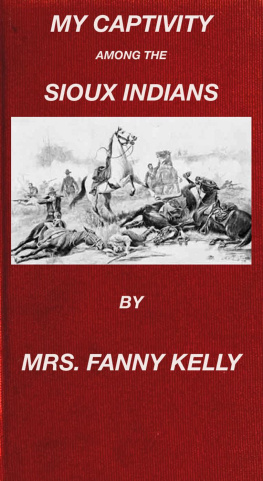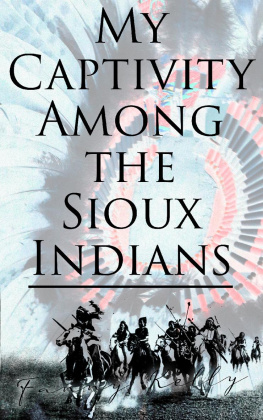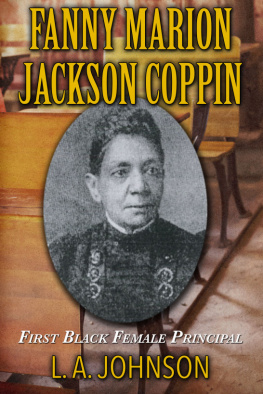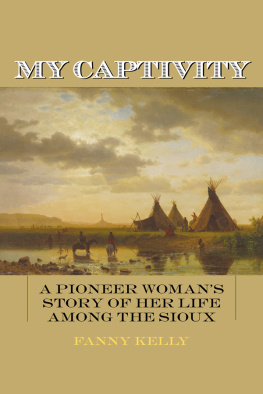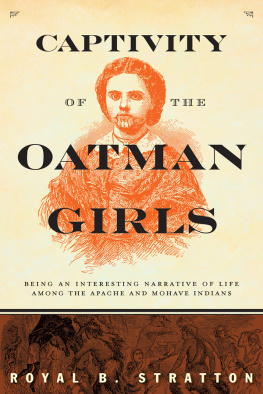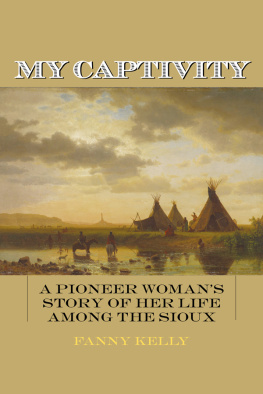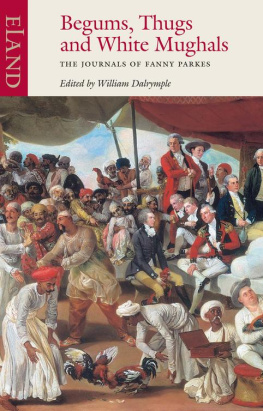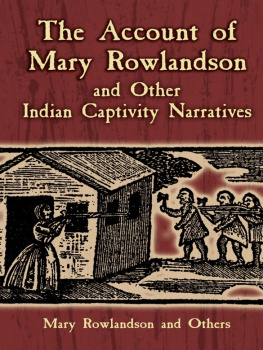Mrs. Fanny Kelly - My Captivity Among the Sioux Indians
Here you can read online Mrs. Fanny Kelly - My Captivity Among the Sioux Indians full text of the book (entire story) in english for free. Download pdf and epub, get meaning, cover and reviews about this ebook. year: 2013, publisher: Maine Book Barn Publishing, genre: Home and family. Description of the work, (preface) as well as reviews are available. Best literature library LitArk.com created for fans of good reading and offers a wide selection of genres:
Romance novel
Science fiction
Adventure
Detective
Science
History
Home and family
Prose
Art
Politics
Computer
Non-fiction
Religion
Business
Children
Humor
Choose a favorite category and find really read worthwhile books. Enjoy immersion in the world of imagination, feel the emotions of the characters or learn something new for yourself, make an fascinating discovery.
- Book:My Captivity Among the Sioux Indians
- Author:
- Publisher:Maine Book Barn Publishing
- Genre:
- Year:2013
- Rating:3 / 5
- Favourites:Add to favourites
- Your mark:
My Captivity Among the Sioux Indians: summary, description and annotation
We offer to read an annotation, description, summary or preface (depends on what the author of the book "My Captivity Among the Sioux Indians" wrote himself). If you haven't found the necessary information about the book — write in the comments, we will try to find it.
The Horrors of Indian Captivity: Narrative Of My Captivity Among The Sioux Indians by Fanny Kelly is an inside look at what captivity among the wild tribes of the Great Plains was like, by someone who experienced it first hand.
Fanny Kelly (1845-1904) was born in Canada and moved as a child to Kansas where she married Josiah Kelly. Josiah's health began to fail and he hoped that a change of climate would aid it. So Josiah, Fanny, her seven-year-old niece, and adopted daughter, Mary Hurley, along with two colored servants-Franklin and Andy-set out in May 1864 from Geneva, Kansas for the region that is now Idaho or Montana. Their small wagon train was attacked by Sioux Indians and Fanny and Mary were taken captive.
The book is devoted to Fanny's adventure and travails among the Sioux during her more than 5 month captivity. She details the Sioux way of life, habits, ceremonies, and savage customs.
A must read for the student of Native American history on the Great Plains. It also serves as background material in understanding the final struggle of the western Indians to preserve their way of life against the flood of emigrants after the Civil War.The struggle would be hopelessly lost in the next decade as the advanced military technology spawned by the Civil War overwhelmed the bravery of the Indians.
This e-book contains over 61,850+ words, approximately 206+ pages at 300 words per page, and all of the Illustrations contained in the original volume.
NOTE: This book has been scanned then OCR (Optical Character Recognition) has been applied to turn the scanned page images back into editable text. Then every effort has been made to correct typos, spelling, and to eliminate stray marks picked up by the OCR program. The original and/or extra period images, if any, were then placed in the appropriate place and, finally, the file was formatted for the e-book criteria of the site. This means that the text CAN be re-sized, searches performed, & bookmarks added, unlike some other e-books that are only scanned-errors, stray marks, and all.
We have added an Interactive Table of Contents & an Interactive List of Illustrations if any were present in the original. This means that the reader can click on the links in the Table of Contents or the List of Illustrations & be instantly transported to that chapter or illustration.
Our aim is to provide the reader AND the collector with long out-of-print (OOP) classic books at realistic prices. If you load your mobile device(s) with our books, not only will you have fingertip access to a large library of antiquarian and out-of-print material at reasonable prices, but you can mark them up electronically & always have them for immediate reference without worrying about damage or loss to expensive bound copies.
We will be adding to our titles regularly, look for our offerings on your favorite e-book site.
Mrs. Fanny Kelly: author's other books
Who wrote My Captivity Among the Sioux Indians? Find out the surname, the name of the author of the book and a list of all author's works by series.

